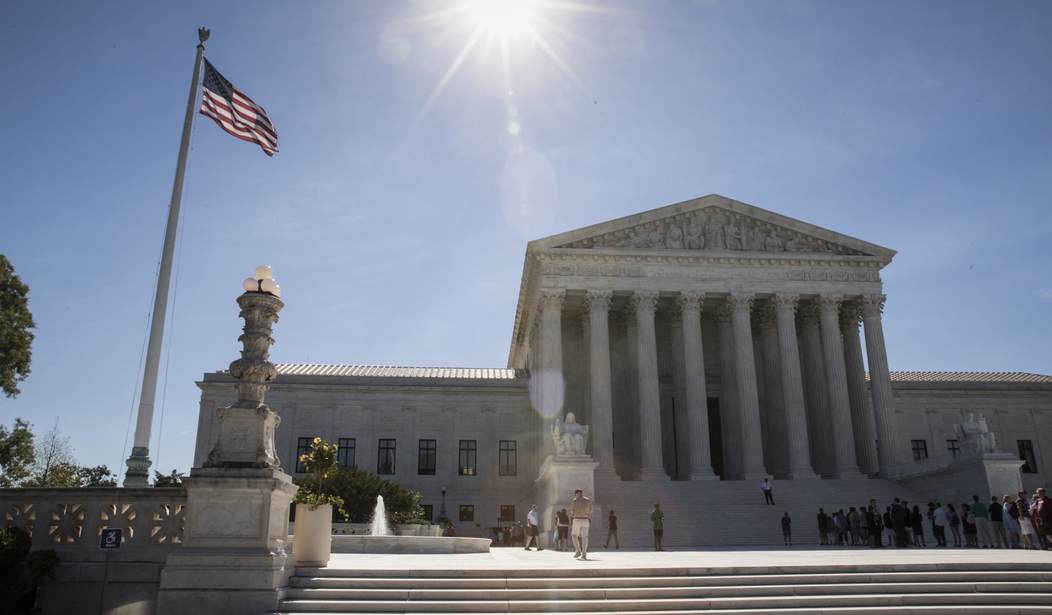A member of the House Freedom Caucus said Congress should find a way to work around a Supreme Court ruling deeming the line-item veto unconstitutional to give President Trump the power to pick apart spending bills.
Rep. Ron DeSantis (R-Fla.) voted against the omnibus spending agreement before Congress left on spring break, arguing that the 2,232-page bill was publicly available for not even 17 hours and “was drafted by a handful of members and staffers behind closed doors without the input of rank-and-file members.”
“Nobody had time to read it, much less understand it,” DeSantis said last week. “Stuffing more than $1.3 trillion in spending and a number of unrelated policy issues into a single, mammoth bill and ramming it through without any time for scrutiny shows that Congress has hit rock bottom.”
Trump signed the bill Friday, saying that the massive hike in defense spending outweighed the lack of border wall funding.
“To prevent the omnibus situation from ever happening again, I’m calling on Congress to give me a line-item veto for all government spending bills,” Trump said Friday. “And the Senate must end. They must end the filibuster rule and get down to work. We have to get a lot of great legislation approved. And without the filibuster rule, it will happen just like magic.”
The Supreme Court struck down the line-item veto in 1998 in Clinton v. City of New York, ruling it clashed with the Constitution’s presentment clause.
“The president under current law is left with the decision, do I veto the entire thing and then fund nothing, or do I sign it, knowing that I’m signing spending into law that really isn’t in the best interest of taxpayers?” DeSantis told Fox today. “I mean, for example, there was over $200 million in the omnibus for promoting democracy in Europe. Now, Europe is the birthplace of democracy. I don’t know why we need to be spending that kind of money. And there were all kind of other examples.”
“So, if you had a line-item veto, the president would get a spending bill. What he could do is, yes, he could sign the overall bill, but in the process of doing that, veto individual line item appropriations within that bill,” he said. “And then what would happen is, if you vetoed a number of line items, that would go back to the Congress. Congress would have the ability to override the president with two-thirds votes, just like a normal veto.”
“But what it would do is, it would provide a backstop against the excessive spending. I mean, right now, all the incentives are to continue to spend. A line-item veto, that really gives the president the ability to make sure that our tax dollars are being spent wisely.”
Treasury Secretary Steve Mnuchin asserted Sunday that “Congress could pass a rule” that gives Trump a line-item veto. When Fox host Chris Wallace replied that a constitutional amendment would be needed, Mnuchin shot back, “We don’t need to get into a debate in terms of — there’s different ways of doing this.”
White House deputy press secretary Raj Shah told reporters Monday that “obviously it has to pass constitutional muster, anything that’s passed,” but “there are certain things being discussed with respect to House and Senate rules.”
DeSantis said he thought the Supreme Court ruling was the “wrong decision” and argued Congress’ passage of the line-item veto in the ’90s “was totally proper.”
“But, nevertheless, that’s where we find ourselves,” the congressman said. “So, any proposal going forward is going to have to reckon with that decision and make sure that we’re either working around it statutorily or just making the constitutional change, so that the courts won’t even get involved at that point.”









Join the conversation as a VIP Member